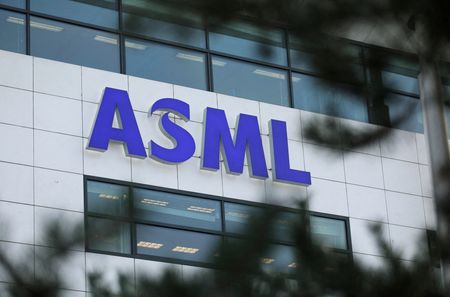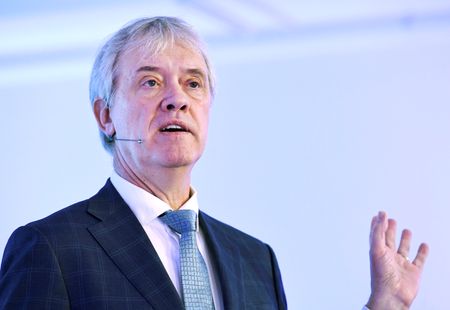AMSTERDAM (Reuters) -The chief executive of ASML Holding NV, the Dutch semiconductor equipment maker, on Tuesday questioned whether a U.S. push to get the Netherlands to adopt new rules restricting exports to China make sense.
“Maybe they think we should come across the table, but ASML has already sacrificed,” CEO Peter Wennink said in an interview with newspaper NRC Handelsblad.
He said that following U.S. pressure, the Dutch government has already restricted ASML from exporting its most advanced lithography machines to China since 2019, something he said has benefited U.S. companies selling alternative technology.
He said that while 15% of ASML’s sales are in China, at U.S. chip equipment suppliers “it is 25 or sometimes more than 30%”.
A spokesperson for ASML confirmed the remarks in the interview were accurate but declined further comment.
The Biden administration issued new export rules for U.S. companies in October aimed at cutting off China’s ability to manufacture advanced semiconductor chips in a bid to slow its military and technological advances.
Washington is urging the Netherlands, Japan and other unspecified countries with companies that make cutting edge manufacturing equipment to adopt similar rules. The Dutch trade minister has confirmed talks are ongoing.
Wennink said it seemed contradictory that U.S. chip manufacturers are able to sell their most advanced chips to Chinese customers, while ASML is only able to sell older chipmaking equipment.
“American chip manufacturers have no problem with China as a customer,” he said.
Meanwhile, “it is common knowledge that chip technology for purely military applications is usually 10, 15 years old. (Yet) the technology used to make such chips can still be sold to China,” he added.
(Reporting by Toby SterlingEditing by Chris Reese and Richard Chang)


